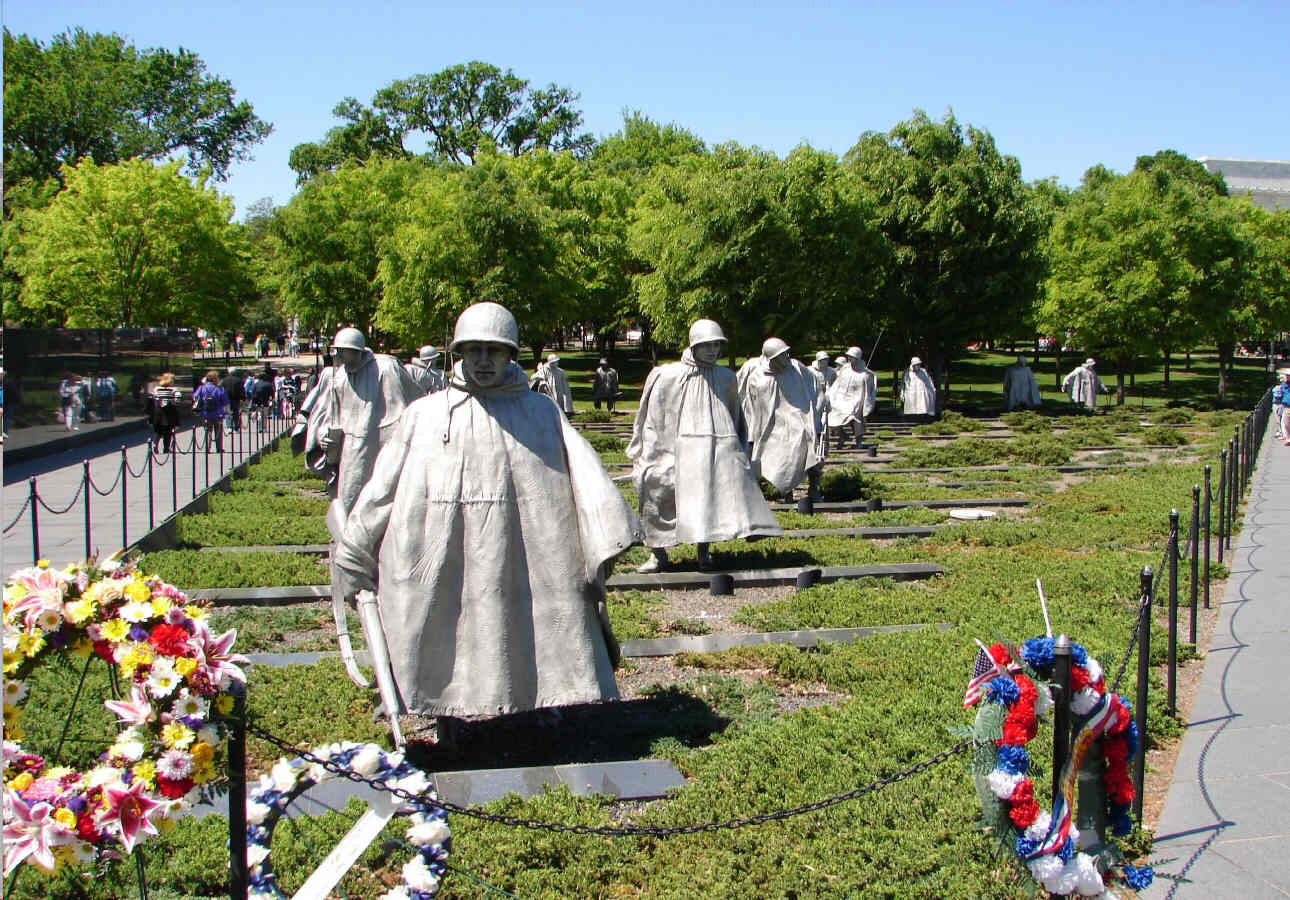 |
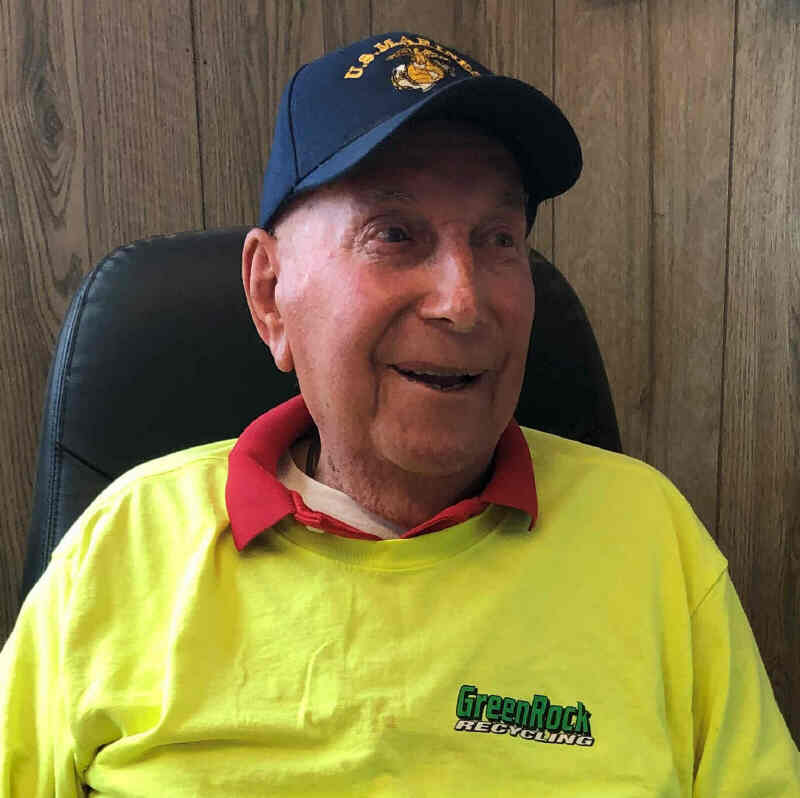 |
He was a Corporal in the Marine Corps during the Korean War.
Fred was born in 1929. He spent his early days working on the family farm in Glen Gardner, milking cows and doing the others things that one does on a farm.
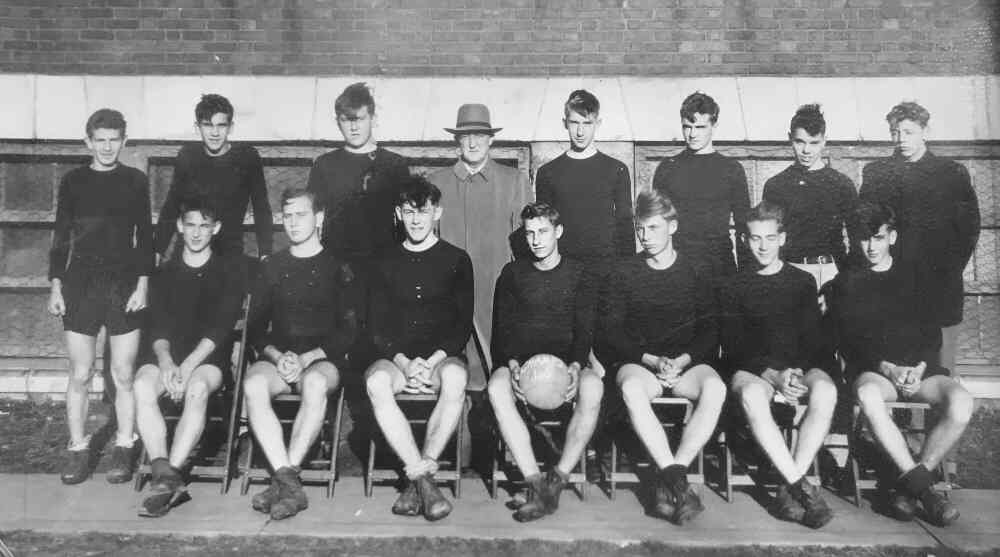

Four of his brothers had served in World War II and Fred wanted to carry on with the family tradition of serving their country.
his 4 brothers and dad.
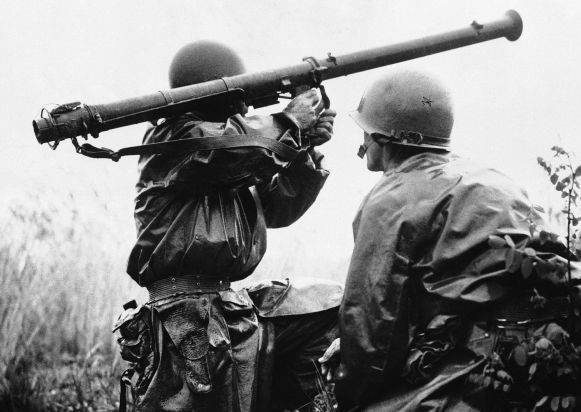
The explosion from the shell would destroy the tank treads and hopefully set the tank on fire.

Another danger was that when fired the bazooka generates a flash that gives away the position of the shooter. Fred would fire his bazooka twice in the war. Once along with another soldier at one enemy tank during fierce combat. Another time he fired the bazooka at a building that needed to be neutralized. This improvised use of a bazooka proved successful as the shell smashed through the building killing several enemy soldiers.

To turn the tide in the battle the U.S. landed additional troops. But not at the expected location near the battle, but more north at the western city of Inchon. It was a dangerous gamble as that site was considered difficult for a troop landing. But the surprise location caught the North Koreans off guard.
Fred Plushanski would participate in that landing. He said the landing was done with minimal casualties. But he went on to say that tough fighting was ahead of them for they soon would be engaged in a battle to recapture the South Korean city Seoul. That was a tough battle, but the U.S. would eventually take back control of the city.
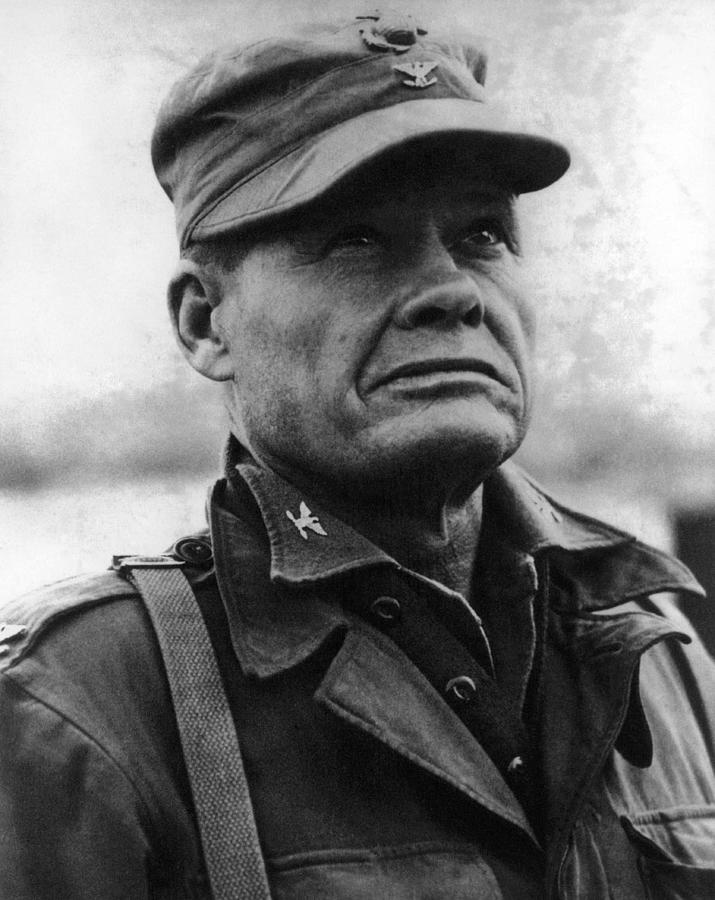
Chesty was a true leader of men who cared deeply for every soldier no matter what the rank. Unlike many other officers of high rank, during battle he commanded close to the dangerous front lines reasoning that his men would be more inspired if he showed no fear.
Ironically during World War II Chesty Puller was the commander of John Basilone at Guadalcanal. It was Chesty who recommended Basilone for the Medal of Honor.
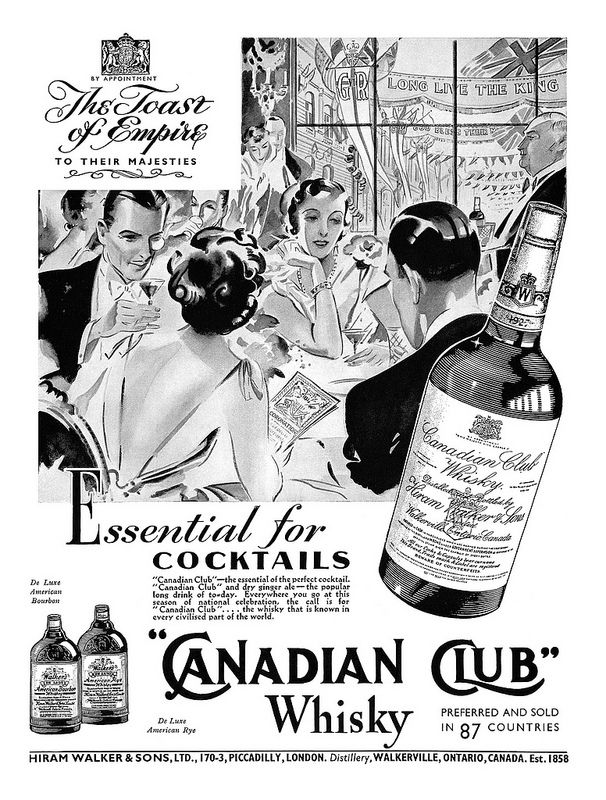
One of his special touches on these visits was to bring a shot of whiskey to his men. Fred Plushanski recalled that Chesty Puller gave him a shot of Canadian Club Whiskey. It was Fred’s first alcoholic drink of his life. Chesty said to Fred drink this and if you get hit it will not hurt as much. Fred downed the shot. It had quite a kick to it.
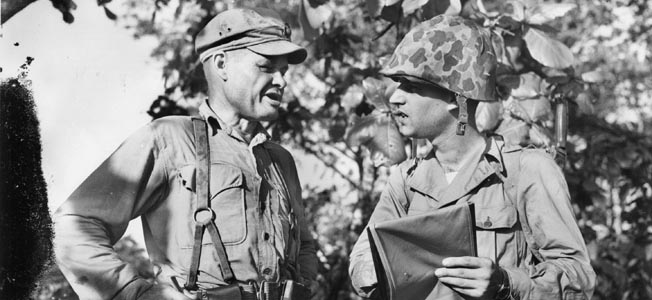
Runners are used to deliver messages to commanders when a field telephone or radio cannot be used or is unavailable. At times the trip could be as long as ten miles.
Fred once had an enemy bullet graze his coat as he traveled through the forest to deliver an important message.
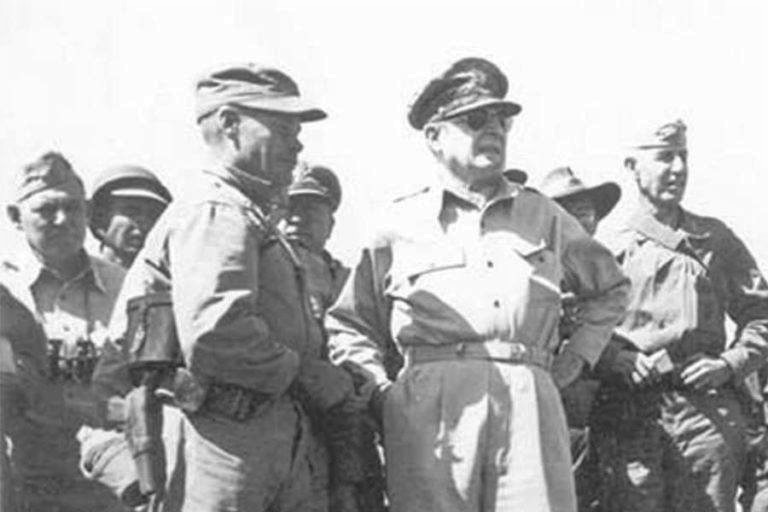
The first was with General Douglas MacArthur. Chesty Puller detested the pompous General. One day MacArthur arrived at the camp with a group of heavily armed jeeps and guards to meet with Chesty who, by contrast, only carried a pistol for protection. Chesty walked half way to MacArthur and stopped. The two officers then stared at each other from afar. Chesty would not move any further. He wanted MacArthur to walk half way to meet him. After a standoff, MacArthur finally walked to meet Chesty.
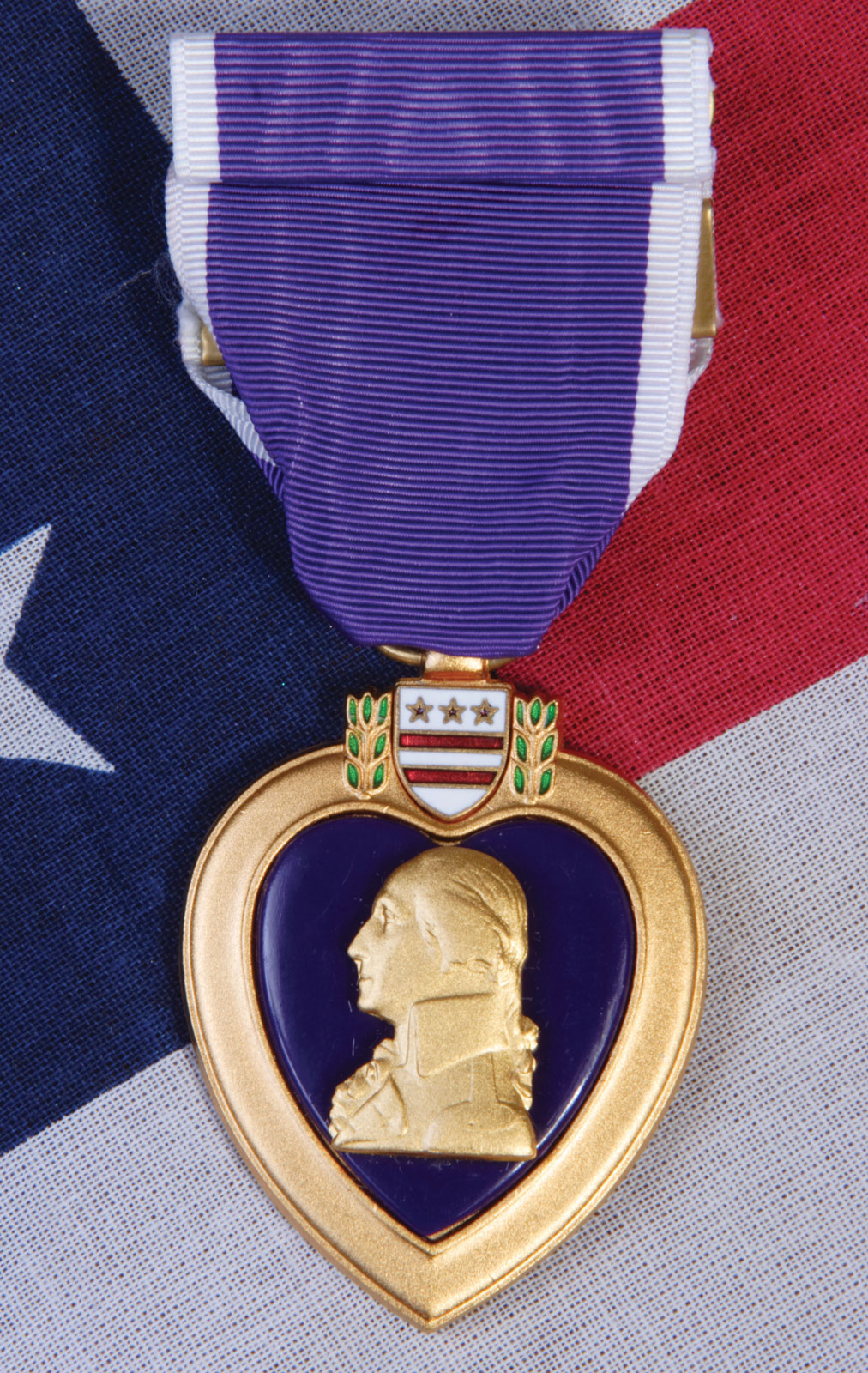
As the fighting went on, President Truman tried to downplay the war calling it a police action. But those doing the fighting knew better. It was a full-scale war with all the tragedies, deprivations, and horror that goes with it. Puller had seen enough of his men being killed and wounded. He also had had it with the freezing conditions they all had to endure. Fred Plushanski observed Chesty Puller pack a foot locker box with Purple Hearts, the medal awarded to men who are injured or killed in battle. Puller mailed the full box to President Truman with a message. Here is a token from your police action.
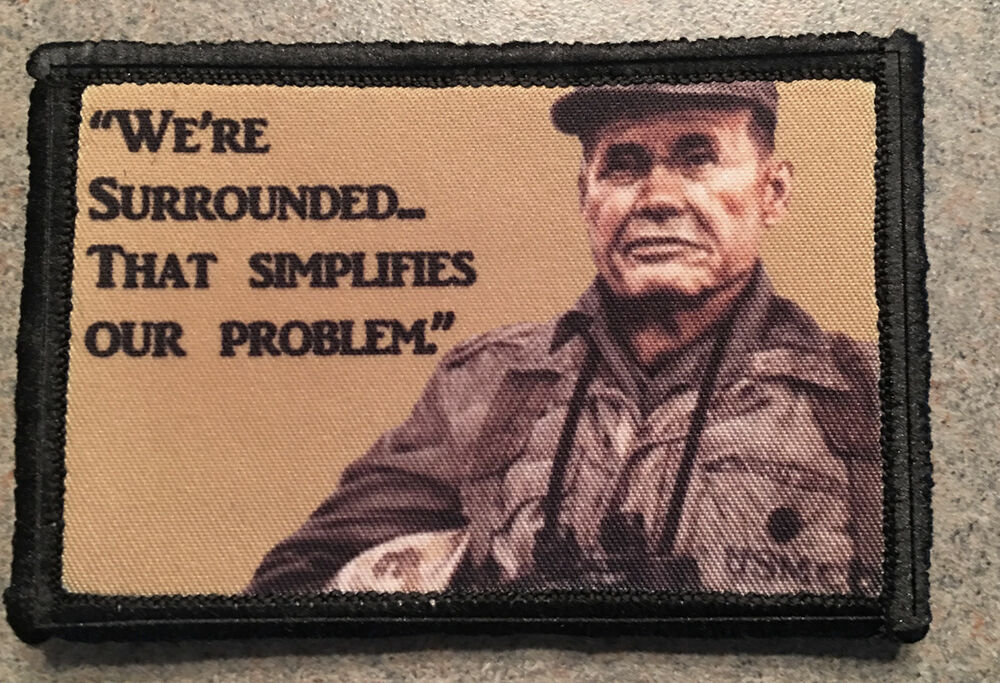
Such that even his biographers write about him with caution, opening asking, could all this be true?
Thus, this author was sure to ask Fred:
Was Chesty Puller really all that he was said to be?
A competent, brave, charismatic leader, who was dedicated to his men. Fred confirmed that Chesty Puller was indeed all that. A great Marine.

For decades Fred did not speak or even think about the war. However, his grandson Brian developed an interest in his Grandfather's Korean War history. Thus, Fred started to share his recollections with him. As a result, many of his memories, which he was glad to share, came back to him.
